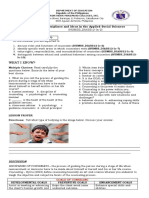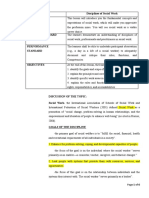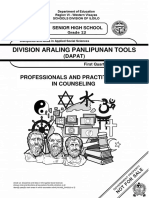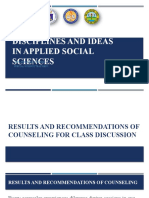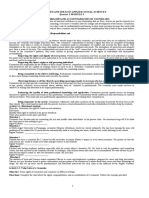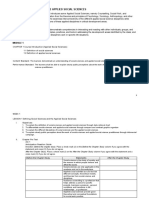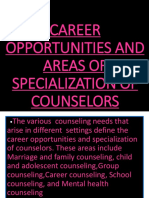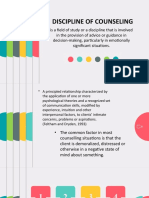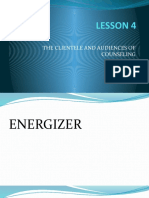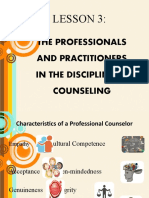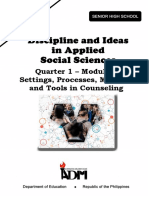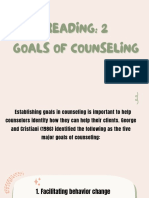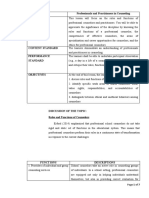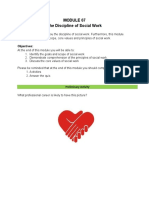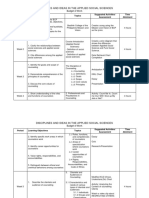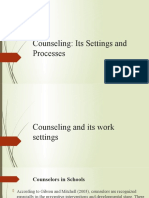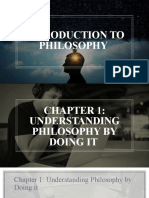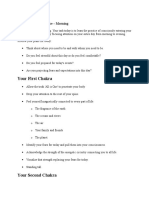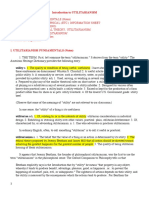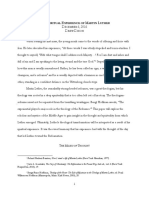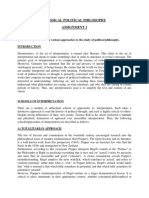0% found this document useful (0 votes)
260 views13 pagesThe Discipline of Counseling: Welcome!
This module introduces counseling as both an art and a science. It aims to define counseling, identify its goals and core values, and explain its principles. Counseling is a professional relationship that empowers individuals, families, and groups to achieve mental health, wellness, education, and career goals. The goals of counseling include development, prevention, enhancement, remediation, exploration, reinforcement, cognitive development, physiological well-being, psychological development, and insight among others. The scope of counseling includes individual, marital, family, and community counseling.
Uploaded by
Sha CalsesCopyright
© © All Rights Reserved
We take content rights seriously. If you suspect this is your content, claim it here.
Available Formats
Download as DOCX, PDF, TXT or read online on Scribd
0% found this document useful (0 votes)
260 views13 pagesThe Discipline of Counseling: Welcome!
This module introduces counseling as both an art and a science. It aims to define counseling, identify its goals and core values, and explain its principles. Counseling is a professional relationship that empowers individuals, families, and groups to achieve mental health, wellness, education, and career goals. The goals of counseling include development, prevention, enhancement, remediation, exploration, reinforcement, cognitive development, physiological well-being, psychological development, and insight among others. The scope of counseling includes individual, marital, family, and community counseling.
Uploaded by
Sha CalsesCopyright
© © All Rights Reserved
We take content rights seriously. If you suspect this is your content, claim it here.
Available Formats
Download as DOCX, PDF, TXT or read online on Scribd
/ 13


